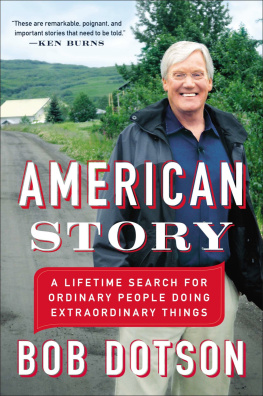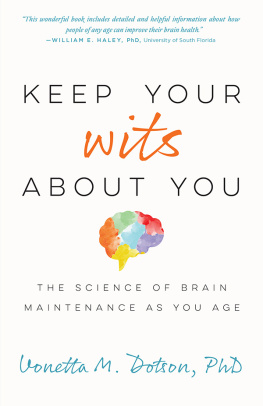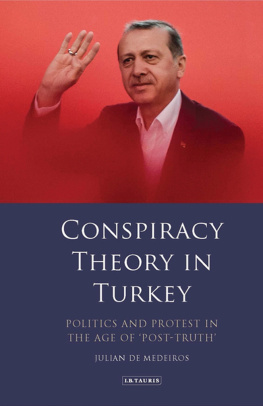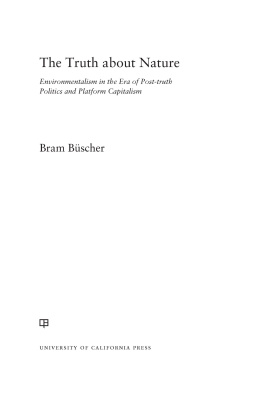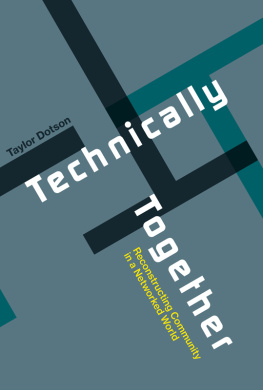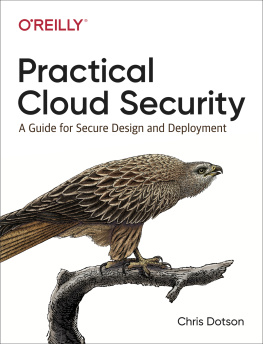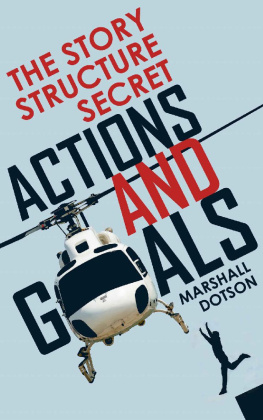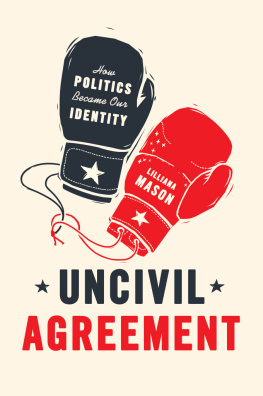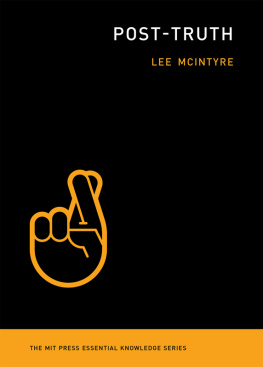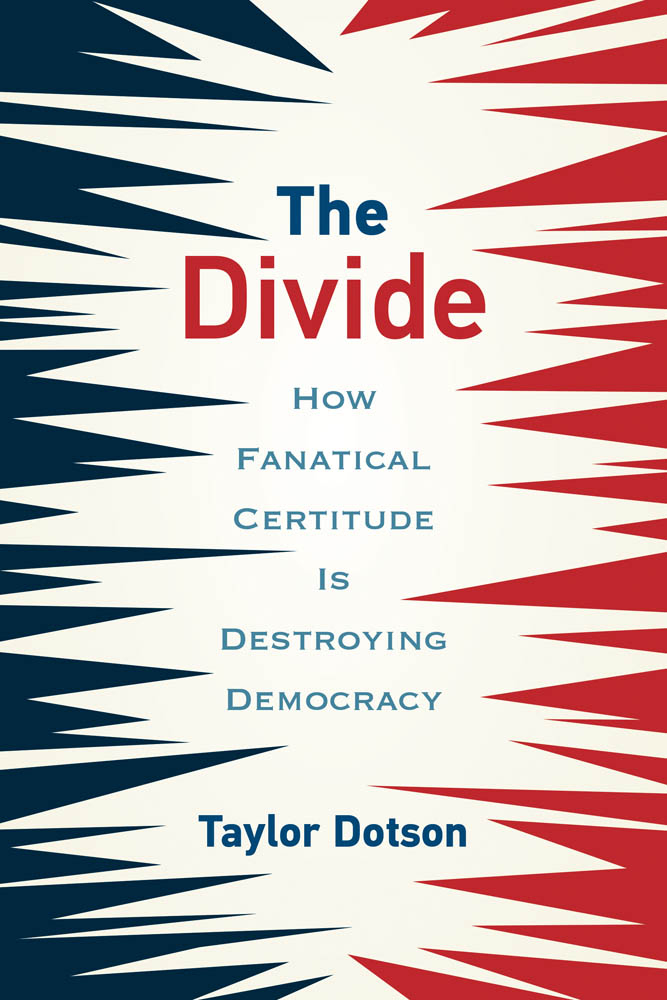This book would not have been possible without support from my wife, Rachel, and encouragement from my friend and colleague Michael Bouchey. I also owe a great deal of gratitude to friends, relatives, social media strangers, and everyone else whom I subjected to repeated attempts to provoke more democratic disagreements. I am grateful for the encouraging comments made by two anonymous reviewers, who saw value in my arguments, and for feedback I received from David Caudill and Andrzej W. Nowak at the Society for Social Studies of Science conference in New Orleans in 2019. Moreover, I am forever indebted to my mentor Ned Woodhouse, without whom I would have never had any of these ideas in the first place. Finally, I thank the editorial and production team at MIT Press, especially Katie Helke, Virginia Crossman, and Laura Keeler, for making this book happen.
1
IF THE TRUTH IS ON YOUR SIDE
There are three sides to every story: yours mine and the truth. No one is lying.
Robert Evans, The Kid Stays in the Picture
I cannot believe how misinformed you people are. The old woman sneered into the microphone, the sheer ignorance Im hearing. The atmosphere at the public meeting was as tense as it was for many of the other congressional townhalls that followed Donald Trumps victory in the presidential election of 2016. My districts seat was then held by Steve Pearcea Republican who greeted Trumps electoral success with considerable enthusiasm. Like countless other Americans, I got up early to drive to my districts townhall meeting because the election results had inspired me to be more active in local politics, to match my social media rhetoric with action. The process of reacquainting myself with public deliberation, however, was disquieting. Many of my experiences made me worry about the prospects for American democracy. This townhall meeting was no exception.
My question to you, representative, is, continued the woman, what will you do to prevent the United Nations from using Agenda 21 to come and take away our property? The irony of someone calling other people misinformed while rehearsing the tired conspiracy theory that a nonbinding UN agreement would lead to an authoritarian world government was not lost on many of the attendees. The part that most stunned me was how seriously Representative Pearce took her question, emphasizing the need to read international agreements carefully. He treated the question more earnestly than he did most of those asked by his more liberal constituents. When citizens expressed reasonable worries about how Republican Party health-care changes affected insurance premiums or expressed concern about the consequences of budgetary or tax issues, Pearce would coldly ask them if they had any documentation to back up their statements. Pearces dismissiveness, seemingly justified by his portrayal of dissenting constituents as lacking the right information, was maddening.
Such interactions seem increasingly commonplace. Citizens respond to political disagreements with the assumption that they are caused by people being misinformed or, even worse, indoctrinated or corrupt. One thinks of actress Rose McGowan publicly deriding Trump voters as the victims of cult brainwashing. When people talk about everything from genetically engineered crops and climate change to gun control and minimum-wage laws, as I will show, they tend to fall back on the belief that only one side of the conflict (theirs) is capable of reasoning rationally. Why have we become a nation seemingly obsessed with the cognitive deficits of political opponents?
TRUTH AND DEMOCRACY
This book explores the role of truth in the practice of democracy. Specifically, how can democracy be possible when people believe outrageous thingsor at least things that the other side thinks are outrageous? How can a populace fundamentally divided over the basic facts, assumptions, and ideas about the environment, human nature, and society hope to govern themselves collectively?
Many, if not most, people are fairly pessimistic. A good portion of the university students I teach believe that the United States would be a better place if it were ruled by a benevolent dictator or perhaps by a committee of scientific and engineering experts. Politics for them is a dirty word; democracy mere fancy.
Numerous scholars and commentators likewise bemoan the apparent slide into a post-truth era, fretting about the perception that objective fact no longer guides politics. The policy scholars Jennifer Kavanaugh and Michael D. Rich, for instance, diagnose American politics as suffering from truth decay, a process by which opinions come to crowd out and overwhelm facts.
Others have claimed that the problem really lies with one particular subset of the population. Journalist Chris Mooney has written an entire book that suggests that differences in Republicans brains leads them to deny science. Alex Berezow and Hank Campbell have responded with the claim that it is really the progressives who are antiscience. They argue that progressive advocacy of organic foods over genetically engineered crops, green energy rather than fossil-fuel extraction, and a whole host of other policy positions are rooted more in emotionally laden feel-good fallacies rather than in reason. Then there are the more brazen and polemical commentators, who dismiss universities as factories for brainwashing youth with leftist nonsense or claim that social justice warriors always lie and disregard reality. The problem, it seems for many political commentators, is that the other side poisons the public sphere with their ill-founded, ignorant, or supposedly intentionally deceptive ideas. If only all Americans could think like Republicans (or Democrats or ), the nation would finally progressor so readers are told.
A common theme running through many laments about the state of politics is the idea that once the truth of a matter becomes discernible, the political process will be overor at least the role of politicking and negotiation should be sharply reduced. As soon as scientists mostly agree about the existence of anthropogenic climate change, some claim, the only thing left to do is act to completely eliminate fossil fuels from peoples lives. Similarly, President George W. Bush, upon winning reelection in 2004 by winning 51 percent of the votebut only around 30 percent of eligible votersdeclared that he had earned a mandate to make his policy preferences law. Bushs dismissive view of the need to negotiate and compromise is shared by many other officials and voters, who have come to see election results as exposing the true will of the people. Political actors on opposing sides of different debates appear highly motivated to shut down disagreementa core feature of democracy writ largeas quickly as possible.


